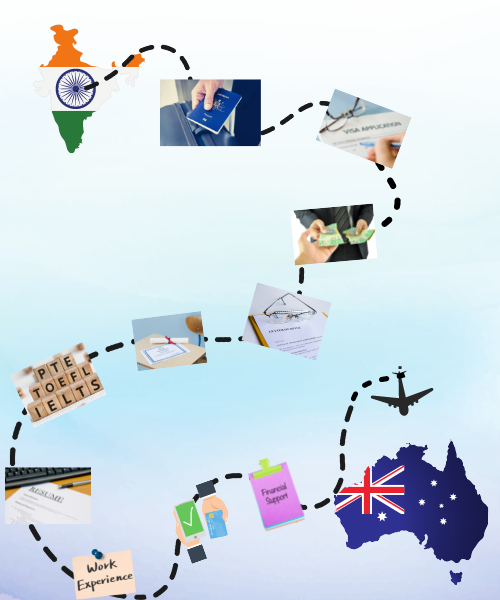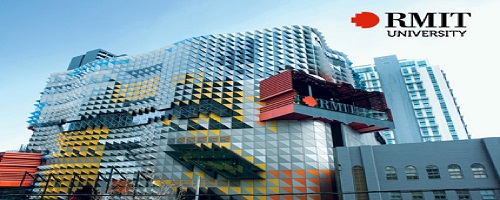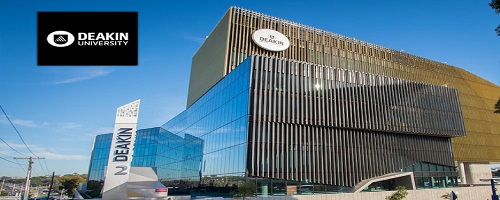
WHY STUDY IN AUSTRALIA
Australian universities are recognized worldwide for the quality of teaching, research and graduate employment. The popular study destinations excel in areas like science, technology, business, education and humanities. Students have an option at every level of study in Australia be it bachelors, graduate certificates, diplomas, masters or a doctorate. The Australian Universities provide an environment that promotes innovation, independent thought and creativity.

IELTS, TOEFL and PTE scores are accepted by all universities
Quick visa outcomes.
- Scholarship opportunities are available for international students.Lower entry requirements of universities with relatively higher international rankings.Australia offers excellent value for money and a standard of living, which is among the highest in the world. Living expenses and tuition costs in Australia are considerably less expensive than the UK and USA.High international rankings of Australian Universities. Australia has the third largest number of international students in the world, after the USA and UK.You may find Australian very different from home, but it is welcoming, friendly and many Australians understand your culture. International experience will enhance your future job opportunities and can give you significant employment advantages.
- Opportunity for Permanent Residency.
No application fee in majority of universities.
No Visa interviews.
Part time job opportunities for international students – 20 hours per week and full time on holidays.Post-Study Work Visa for 2/3 years for undergraduate and post graduate courses.For international students, who do not meet eligibility requirements, additional pathway programs available without elongating the term of course.Australian qualifications and institutions are recognised globally for their high quality and excellence. Graduates from Australia are very successful in finding jobs and hold prominent positions worldwide.
Additionally, they are readily accepted for postgraduate study at leading international universities.
IELTS, TOEFL and PTE scores are accepted by all universities
Quick visa outcomes.
Scholarship opportunities are available for international students.
Lower entry requirements of universities with relatively higher international rankings.
Australia offers excellent value for money and a standard of living, which is among the highest in the world. Living expenses and tuition costs in Australia are considerably less expensive than the UK and USA.
High international rankings of Australian Universities. Australia has the third largest number of international students in the world, after the USA and UK.
You may find Australian very different from home, but it is welcoming, friendly and many Australians understand your culture. International experience will enhance your future job opportunities and can give you significant employment advantages.
Opportunity for Permanent Residency.
No application fee in majority of universities.
No Visa interviews.
Part time job opportunities for international students – 20 hours per week and full time on holidays.
Post-Study Work Visa for 2/3 years for undergraduate and post graduate courses.
For international students, who do not meet eligibility requirements, additional pathway programs available without elongating the term of course.
Australian qualifications and institutions are recognised globally for their high quality and excellence. Graduates from Australia are very successful in finding jobs and hold prominent positions worldwide.
Additionally, they are readily accepted for postgraduate study at leading international universities.

Tourism And Hospitality

Aviation

Biological And Life Sciences

Humanities and Social Sciences

Engineering and Technology

Sports

Business Studies

Law And Regulations

Language

Humanities and Social Sciences

Engineering and Technology

Sports
What is Student Direct Stream (SDS)?
Indian students applying to universities and colleges in Canada can now expect faster visa processing through the Study Direct Stream (SDS) program launched by the Immigration, Refugee and Citizenship Canada. Unlike the usual visa processing that may take up to 2-3 months, SDS allows students from India to avail their visa in 4-6 weeks. When a student who meets the eligibility criteria applies via SDS, most applications are processed within 20 calendar days.
A replacement to the erstwhile SPP program, SDS has more stringent rules and regulations to fulfill. However, it can be extremely beneficial for those who meet the criteria as it provides easy visa processing for SDS entitled DLI institutions and requires less financial documentation.
Before we move ahead, you’d need to understand a little about the Designated Learning Institutions (DLIs) and Guaranteed Investment Certificate (GIC).
A designated learning institution or DLI is a university, school or college approved by a provincial or territorial government to host international students. All public universities, colleges and major private universities and colleges in Canada are DLI. So, if you’re applying for a study permit, you are required to have a letter of acceptance letter from a DLI. You should know that international students can only be recruited by a DLI; a non-DLI is not permitted to admit international students.Note: DLI doesn’t entitle automatic eligibility for post-study work permit.
ICICI Canadian Imperial Bank of Commerce (CIBC) SBI Canada Scotiabank HSBC Bank of Canada
A GIC is a Canadian investment that has a guaranteed rate of return for a fixed period of time. In simple words, as an Indian student wanting to study in Canada, you’ll be required to open a Canadian bank account online with any one of the designated banks. Once your account is created, the bank holds your GIC in a student account or an investment account that you’ll be able to access only when you arrive in Canada. It releases your funds only upon the confirmation of your identity when arrive in the country. While you can take an initial lump sum amount on arrival, the remaining is distributed monthly or bi-monthly over a period of 10-12 months. Remember, the bank from which you purchase your GIC must provide you with any of the following:a GIC certificate a letter of attestation an Investment Balance confirmation an Investment Directions confirmation The IRCC (Immigration, Refugees and Citizenship Canada) verifies every GIC, eliminating the possibility of any kind of financial document related fraud. No other financial document is required under SDS to prove to the IRCC that the student has sufficient funds to support their tuition fee and living expenses.
To be able to apply for a study permit via SDS, certified conditions are required to be fulfilled:Acceptance from a post-secondary designated learning institution (DLI) Tuition fee paid for your first year of study Guaranteed Investment Certificate (GIC) of CAD10,000 Minimum score of 6 in IELTS with no band less than 6 or a TEF (Test d’évaluation de français – French language proficiency test) score that is equal to a Canadian Language Benchmark (CLB) score of at least 7 in each skill (reading, writing, speaking and listening)
Letter of acceptance from a DLI Proof of payment of tuition fee for your first year of study Proof of Guaranteed Investment Certificate (GIC) payment (certificate/letter of attestation) IELTS TRF or TEF score card Copy of your medical examination from an authorised panel of doctors Relevant academic background with complete academic documents Additional requirement of CAQ for students intending to study in Quebec All applications for SDS are submitted online.

Work Opportunities
Briefly this course prepares you to operate safely in a complex aircraft, to understand the technologies and human factors that affect the successful operation of an aircraft and to assume the professional responsibility associated with being a commercial pilot.

Studying UG/ PG:

Spouse & Minor Children

Co-op internship
Many of the institutions in Canada offer paid internships as part of the course where the students get the opportunity to work full time in industry relating to their area of study. Some programs in Canada like co-op do include work experience as part of their curriculum. You need to apply for a work permit only if your acceptance letter confirms that a co-op or internship placement is part of your program’s curriculum. In such a case the work permit will be processed as part of the application and the student will be issued SW-1 visa.S-1 stands for Study Visa and SW-1 visa is for Study and Work visa or study permit with work permit. Students who have a compulsory co-op in their program are supposed to be issued SW-1 visa.
Visa Application
You need to apply for your Student Visa for Australia through the Department of Home Affairs online lodging facility, then you will need the details of your electronic Confirmation of Enrolment to lodge your visa application.
Student Visa Conditions
- Valid Passport
- Completed Form 157 A
- Completed Form 956A
- Visa application fees of AUD 575 payable to Australian High Commission (Subject to change)
- Letter of Offer / Provisional Acceptance (Original and Copy) issued by the Australian Educational Institution for a full-time course. The institution should be registered with CRICOS to offer courses to an overseas student.
- Educational Testimonials (Mark Sheets and Certificates). All copies should be Notary Attested.
- IELTS/TOEFL/PTE scorecard
- Resume & detailed statement of purpose
- Work Experience Documents (If any)
- Evidence of Payment (COE) of First-Semester Tuition Fees and Overseas Student Health Insurance Cover (OSHC)
- Referral Letter (HAP ID)
- Evidence of your / your parent’s financial support (even where another sponsor is supporting the application)
- A Letter from the Sponsor. Affidavit of Support (original and notary attested copies on stamp paper) which should include:
- Income Tax Return (of last three years)
- Details of the sponsors’ other dependents
- The sponsors’ relationship with you
- Personal bank statement of the sponsor
- Any other documents about financial standing
Visa Documents and other Requisites
- Maintain a satisfactory academic performance.
- Not work more than 40 hours per fortnight while studying. You can, however, work full-time during vacation.
- Satisfy the course requirements and maintain a valid enrolment.
- Attend at least 80% of the classes.
- Maintain health insurance for the duration of stay in Australia.
- Prove yourself to be a genuine temporary entrant (GTE) which means that you need to show you are coming to Australia temporarily to gain a quality education

While International students study in Australia mostly on a full fee paying basis, the Australian Government and many Australian institutions offer their own scholarships to international students. Government-funded Australian scholarships for international students.
- Australia Awards Scholarships (AAS) – Scholarships to study in Australia for students of all degree levels (bachelors, masters, PhD) hailing from selected countries within the Asia-Pacific region, Africa and the Middle East.
- Destination Australia awards – Over 1,000 scholarships of up to AU$15,000 per student per year are available to both domestic and international students to study at all study levels at universities in regional Australia.
- Research Training Program (RTP) – Postgraduate-level Australian scholarships for domestic and international students to study a research degree at a participating Australian university.
- Australia Awards Scholarships(AWS): For people from developing countries to undertake undergraduate and post graduate programs at participating Australian universities and Technical and Further Education (TAFE) institutions. The scholarship benefits generally include: full tuition fees, return air travel, establishment allowance, contribution to living expenses (CLE), Overseas Student Health Cover (OSHC), etc.
- Endeavour Postgraduate Scholarship Awards(for Masters or PhD)
- International Postgraduate Research Scholarships (IPRS)for students to undertakea postgraduate research qualification in Australia covering tuition fees and health cover costs.
- University of Sydney International Research Scholarships(For Post Graduate studies)
- Macquarie University International Scholarships– For outstanding students in undergraduate or post graduate programs
- University of Melbourne Graduate & Undergraduate Research Scholarships.
- Adelaide Scholarships International (University of Adelaide)
- Flinders International Postgraduate Scholarships (for Research Masters or Research Doctorate).
There are certain institution scholarships which do not require an application; you will be automatically considered when you apply for your course, if you are eligible.
Location
It lies in the southern hemisphere so the weather seasons are opposite to that of India. Australia has five of the 30 best cities in the world for students to live in based on student mix, affordability, quality of life, and employment opportunities. The capital of Australia is Canberra.








Education system
Australia is one of the top study destinations with an excellent education system. Some colleges and universities are publicly funded, while others are privately supported. Australia has 39 universities, 37 out of which are public and two are private. With 8 out of 120 World’s Top Universities and 5 out of 30 Best Student Cities in the World, Australia is home to over 1100 institutions offering a wide range of programs.35 Australian universities are among the world’s best-ranked universities. Most of the best colleges in the country are situated in cities like Sydney, Canberra, Brisbane, Melbourne, Adelaide and Perth.Australia has the third-highest number of international students in the world after the United Kingdom and the United States. Australia’s national quality assurance system is unique in its structure and rigor.Lifestyle
Australians are known to be friendly and helpful people, with a great sense of humor. Australia is considered one of the most competitive nations on Earth. This covers all areas of life including the workplace. While English is Australia’s national language, there are certain words and expressions that have come to be regarded as uniquely Australian through common usage. Some of them might seem strange to non-Australians. Australians love their sport, both playing it and watching it. The most loved sports in Australia include Australian football, rugby, and cricket. This relatively benign climate has resulted in a country where people spend a good deal of time outdoors at beaches, in the countryside or on sporting fields as either spectators or participants.Stay Permits
Now Adelaide, Perth and Gold Coast are classified as regional by the federal government. This allows the cities’ university graduates an additional year of post-study work rights (PSWR). Also, the graduates in Darwin city can stay for two more years and Ph.D. graduates can stay up to six years. Even after receiving the regional status for migration, all cities other than Sydney, Melbourne, and Brisbane will not be entitled to the Destination Australia scholarships. Only areas classified as ‘Inner Regional Australia’ to ‘Very Remote Australia’ remain eligible for Destination Australia. Darwin as the only capital city which has access to both the scholarship scheme and an additional two years of PSW.There were nearly 589,000 Indian immigrants living in Australia in 2017. They represent the second-largest immigrant group by country of origin, after China. Almost one-third of all Indian immigrants reside in Victoria.Popular Colleges Universities
The top universities in Australia are The Australian National University, The University of New South Wales, The University of Melbourne, The University of Western Sydney, and Monash University (in no particular order). The area of New South Wales on the east coast of Australia is the centre of all its renowned academic institutes. Most of the best colleges in the country are situated in cities like Sydney, Canberra, Brisbane, Melbourne, and Perth. Information Technology and Information System, Computer Engineering, Mechanical Engineering, Civil and Structural Engineering, Planning and Architecture, Accounting, Master of Business Administration (MBA), Health Care, Information Technology, and Hotel Management are the preferred courses Indian students pursue in Australia.Safety in Australia
Australia is a multicultural society that welcomes people from other cultures, countries, and backgrounds. While the majority of Indian students studying in Australia have a positive experience of living and studying in Australia, there were incidents of assault as well as of robbery during 2009 and 2010, which affected not only Indian students.Weather
Australia is diverse in its geography and climate. The country is located in the southern hemisphere. This means Australia’s summer starts in December and winter begins in June. Nearly a third of Australia is in the tropics where the average temperatures are in the mid 20 degrees Celsius. The southern areas are in a temperate zone.Yes, degrees from Australian institutions are accepted worldwide and known for their quality of education.
Yes, 10+2+3 system is accepted by Australian universities for master’s programs.
The gap is accepted only if it is justifiable with proper supporting documents.
CRICOS is Commonwealth Register of Institutions and Courses for Overseas Students. As an international student on a student visa, you have to study with an institution and in a course that is registered on CRICOS as this registration assures that the course and the institution at which you want to study meets the high standards expected by international students to study in Australia.
All students under 18 years of age must have welfare arrangements in place for the duration of their stay in Australia until they turn to the age of 18.
All students with subclass 500 visa are allowed to work 40 hours per fortnight and full-time during vacations. Doctorate students can work full-time throughout the year.
Yes, there are internships in Australia but for selective courses. Internships for international students in Australia may be paid or unpaid depending on the industry and the length of placement. Internships provide a great opportunity to gain hands-on experience in the area of your study.
There are many consumer protection and support services available for international students. These services may be provided directly by institutions or by state, territory and federal government departments.
As an international student, you need to have Overseas Student Health Cover (OSHC) for the entire duration of your study in Australia. Along with OSHC you can also consider purchasing private health insurance for items that your OSHC does not cover.
The student visa requirements depend on your course of study and certain other significant requirements like an electronic Confirmation of Enrolment (eCoE) certificate, Genuine Temporary Entrant requirement, sufficient funds, English language proficiency, health and character requirements and Overseas Student Health Cover (OSHC).
Speak To Our Counsellor

